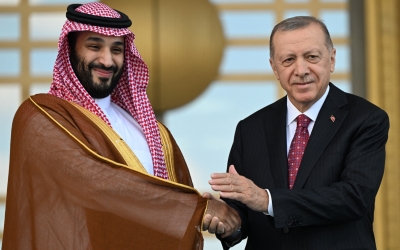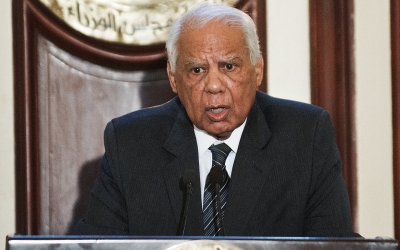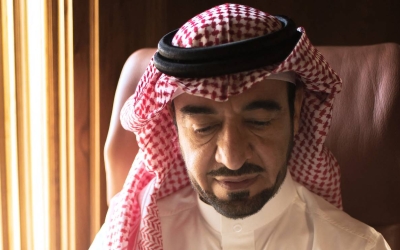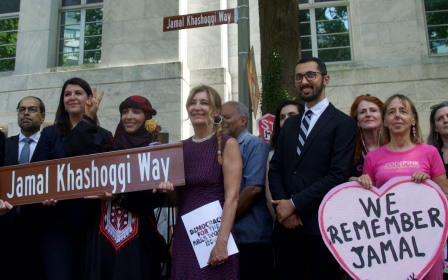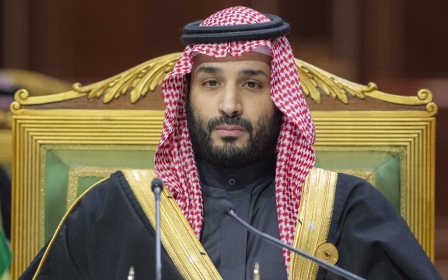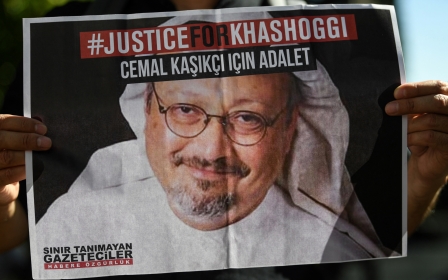Khashoggi: What Biden’s prior legal interventions tell us about immunity for MBS
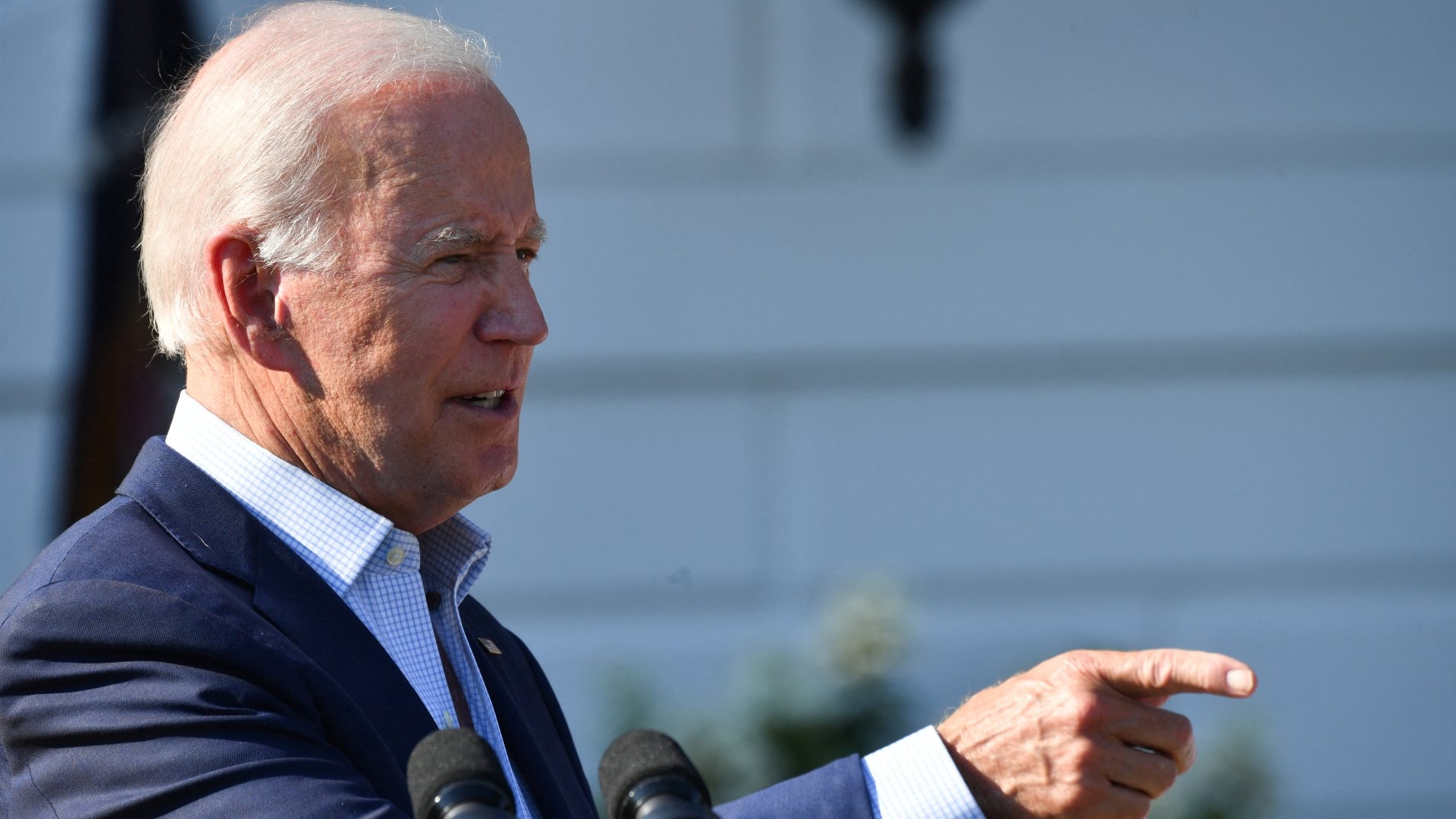
A US judge has given President Joe Biden's administration until 1 August to weigh in and say whether or not it believes that Saudi Crown Prince Mohammed bin Salman be given immunity from a lawsuit, which was filed by the fiancee of murdered Washington Post and Middle East Eye columnist Jamal Khashoggi.
The order by the judge, placed on Friday, places pressure on Biden to decide whether or not to intervene in a court case that could implicate the de facto ruler of Saudi Arabia, a long-time strategic ally of the US in the Middle East.
New MEE newsletter: Jerusalem Dispatch
Sign up to get the latest insights and analysis on Israel-Palestine, alongside Turkey Unpacked and other MEE newsletters
"In the Court's view, some of the grounds for dismissal advanced by defendants might implicate the interests of the United States; moreover, the Court’s resolution of defendants' motions might be aided by knowledge of the United States' views," the order said.
And it comes just weeks ahead of Biden's first trip as president to Saudi Arabia, where the administration will look to reset the Saudi-US relationship after a strenuous several months.
The lawsuit was filed by Hatice Cengiz and Democracy for the Arab World Now (Dawn), the US-based advocacy group that Khashoggi established and ran before his death. Khashoggi was killed inside the Saudi consulate in Istanbul on 2 October 2018, in a murder that shocked the world and which continues to have global ramifications.
The judge has yet to rule whether or not the court has jurisdiction. If it does, the lawsuit could open what one source described to Middle East Eye as a "pandora's box" of information, with the court potentially demanding that the crown prince gives evidence in person.
In looking closer at the Khashoggi court case, in which the judge has asked the Biden administration to weigh in, MEE looks into how the administration has previously intervened in US legal cases with implications for its Middle East allies.
Mohamed Soltan v Hazem el-Beblawi
In June 2020, Egyptian-American rights activist Mohamed Soltan filed a lawsuit against former Egyptian prime minister Hazem el-Beblawi, accusing him of being responsible for his torture while Soltan was in a Cairo prison.
Soltan, who spent 643 days in prison in Egypt after being arrested in July 2013, accused Beblawi of direct responsibility for his treatment, which included being shot, beaten and tortured.
He sued Beblawi under the Torture Victim Protection Act (TVTP), a 1991 US law that allows victims of torture to sue for compensation from their tormenters if the accused are in the US and no longer head of state.
Beblawi, who was trained as an economist at the Sorbonne in Paris, was living in McLean, Virginia, and was on the executive board of the International Monetary Fund in Washington at the time the suit was filed.
The lawsuit stated that while in jail, Soltan was burnt with cigarettes, had his ribs broken and was held in solitary confinement. He was also denied urgent medical attention for a bullet wound.
Ultimately, however, the Biden administration issued a court filing asserting that "Beblawi held diplomatic status at the time when the suit was commenced" and because of this the court should dismiss claims falling within "the scope of his immunity".
Following the Biden administration's move, the judge dismissed the case, using the argument of Beblawi's immunity.
The case offers potential precedent for the administration to decide if the crown prince has immunity in the case against him. However, it brings up the question of whether the Saudi royal would be given "head of state immunity", given that Biden has repeatedly said that his counterpart in Saudi Arabia is King Salman and not Mohammed bin Salman, who is also known as MBS.
Saad al-Jabri v Saudi state-run companies
Saad al-Jabri, Saudi Arabia's former spy chief, and Mohammed bin Salman are currently enmeshed in a legal battle in the US, in which Jabri has accused the crown prince of sending a hit squad to assassinate him in Canada.
After Jabri filed a lawsuit against Mohammed bin Salman in Washington, a group of Saudi state-run companies led by Sakab Saudi Holding responded with a lawsuit against Jabri filed in Massachusetts.
Sakab accused Jabri of embezzling state funds while working under former Crown Prince Mohammed bin Nayef, who in 2017 was ousted, placed under house arrest and replaced by his cousin, Mohammed bin Salman. Jabri has denied these allegations.
Then in September 2021, Avril Haines, the US director of national intelligence, invoked a rarely used state secrets legal privilege to prevent the release of classified information in the case.
Haines said the information that was due to be released as evidence in Sakab's lawsuit against Jabri could potentially cause "exceptionally grave" harm to US national security. As a result, the judge dismissed the case.
While the Biden administration's intervention in this case was seen as a blow to the Saudi government, it does show precedent that the US government does intervene in court cases for the sake of self-preservation, whether it be for state secrets or Washington's ties with foreign allies.
Biden has less than a month to issue its assessment of the legal case filed against the Saudi crown prince. Meanwhile, rights groups have viewed his upcoming visit to Saudi Arabia as a "betrayal", given the US president's promise to hold Riyadh accountable for human rights abuses, including the murder of Khashoggi.
Abdullah Alaoudh, the Gulf director for Dawn, told The Guardian that if Biden were to rule that Mohammed bin Salman should have immunity in the lawsuit, it would be "the final nail in the coffin for attempts to hold Khashoggi’s murderers accountable".
"It would be so shameful if on top of every broken [Biden] promise to hold MBS accountable for the murder of #JamalKhashoggi he intervenes to block our organization [Dawn]'s lawsuit to at least get judicial justice," Sarah Leah Whitson, executive director of Dawn, said on Twitter.
Middle East Eye delivers independent and unrivalled coverage and analysis of the Middle East, North Africa and beyond. To learn more about republishing this content and the associated fees, please fill out this form. More about MEE can be found here.


